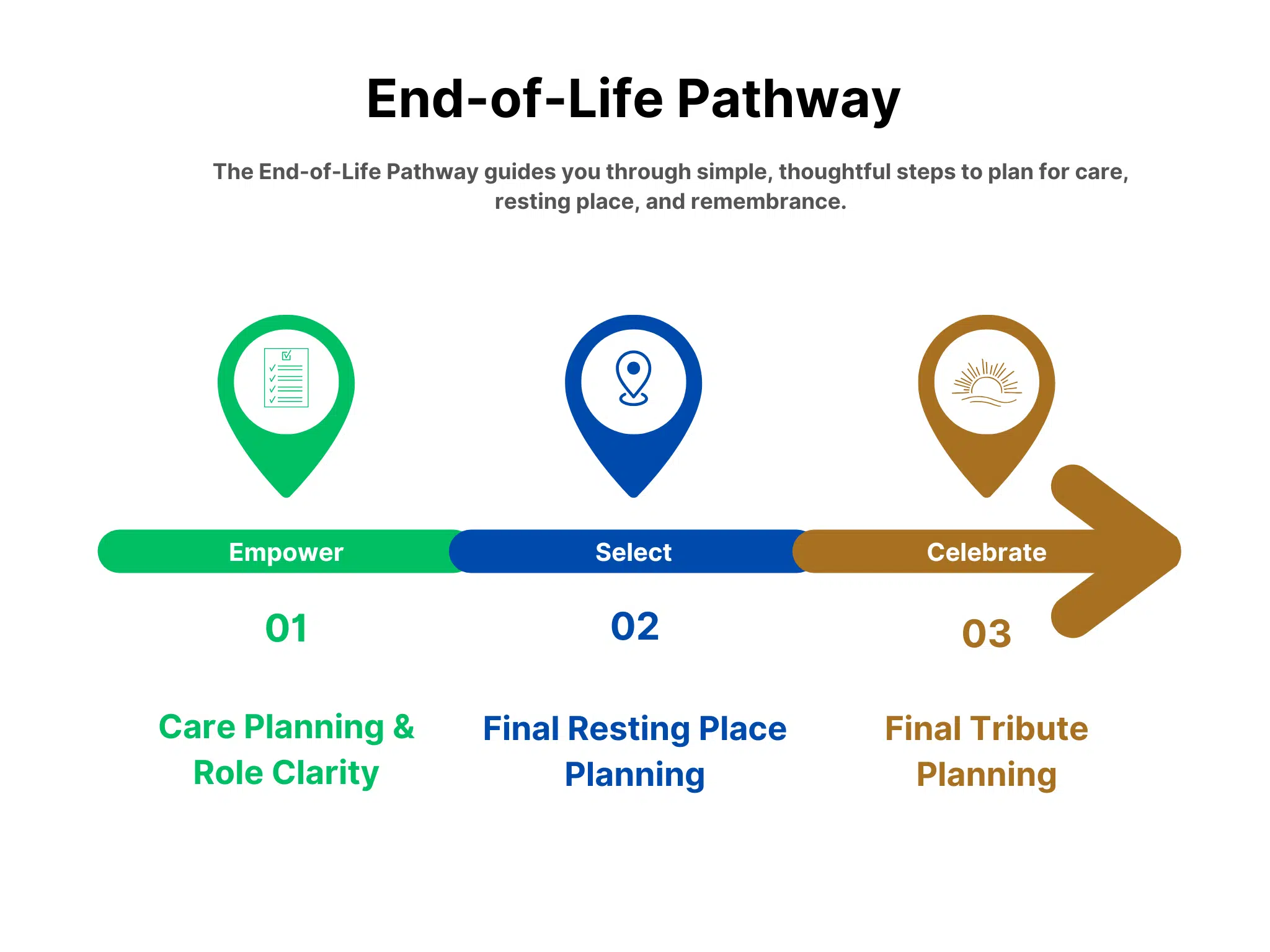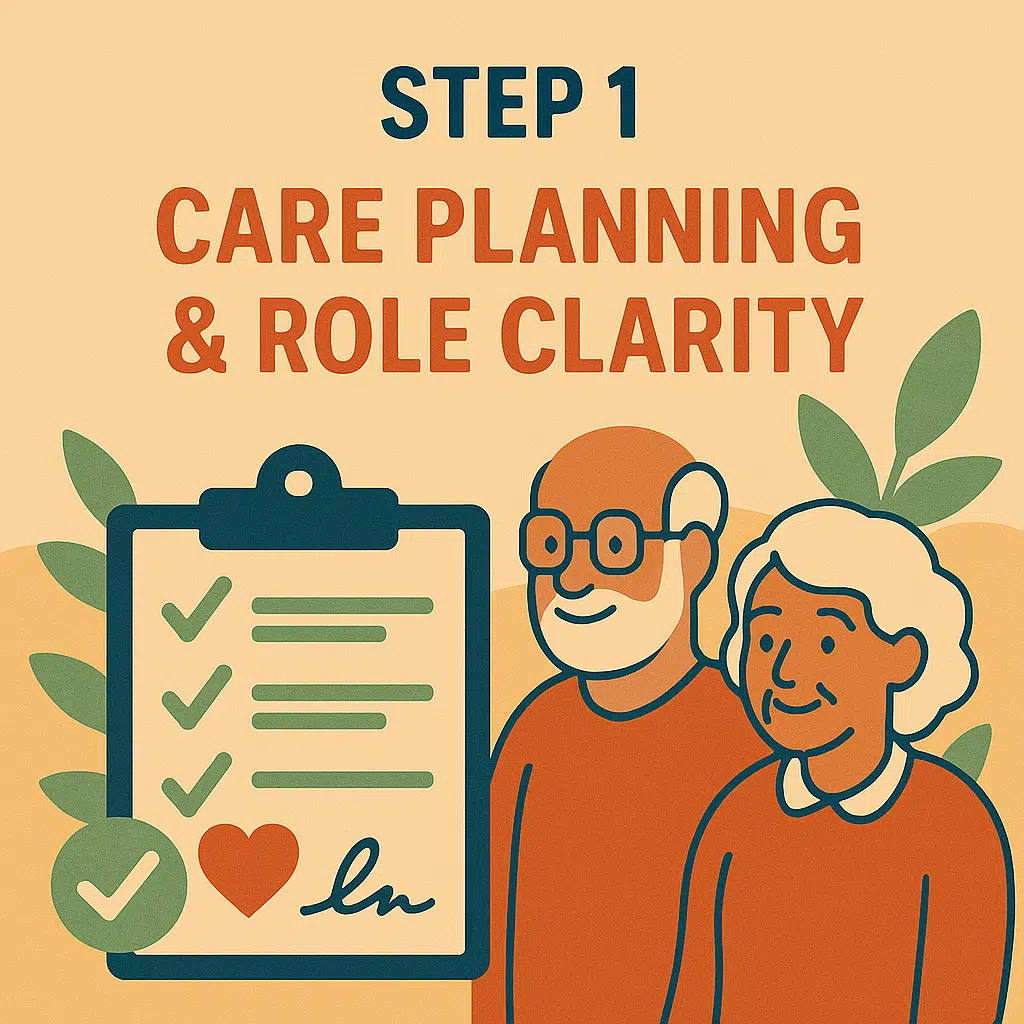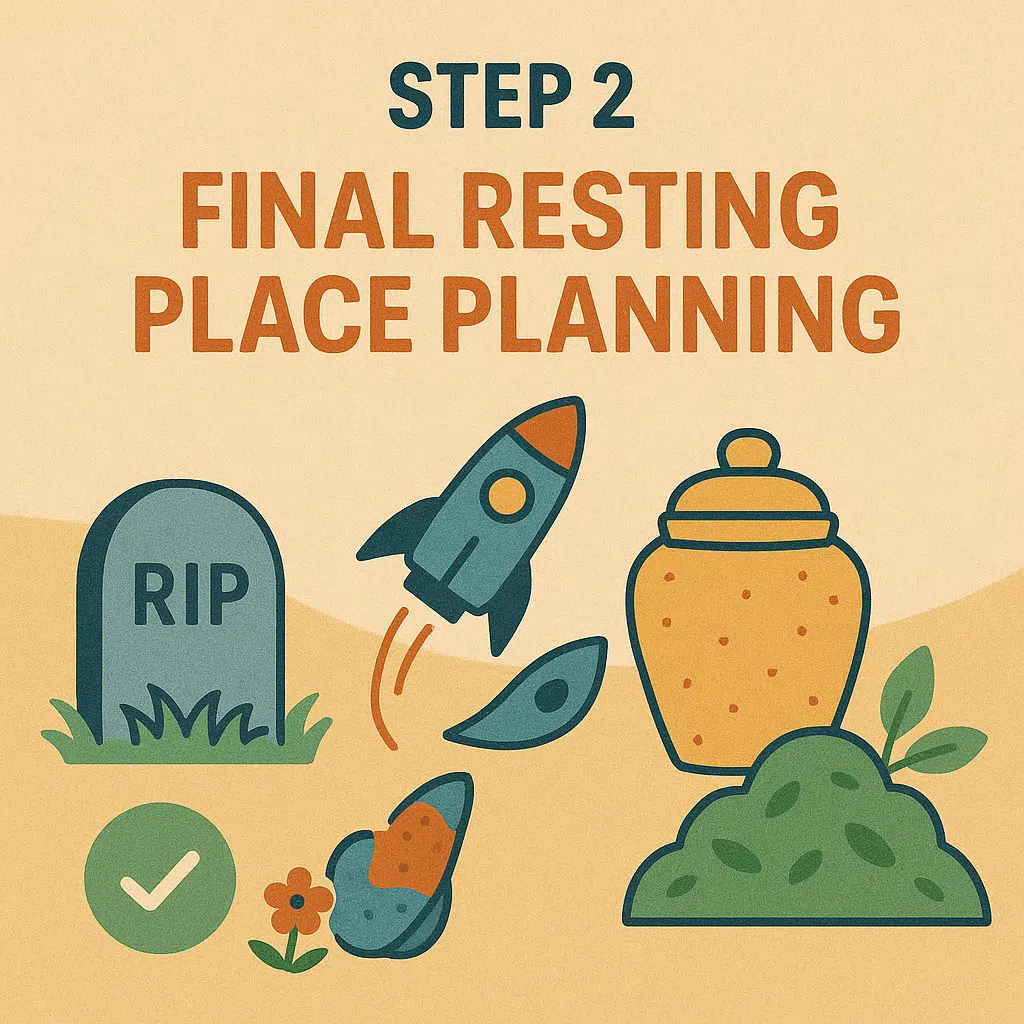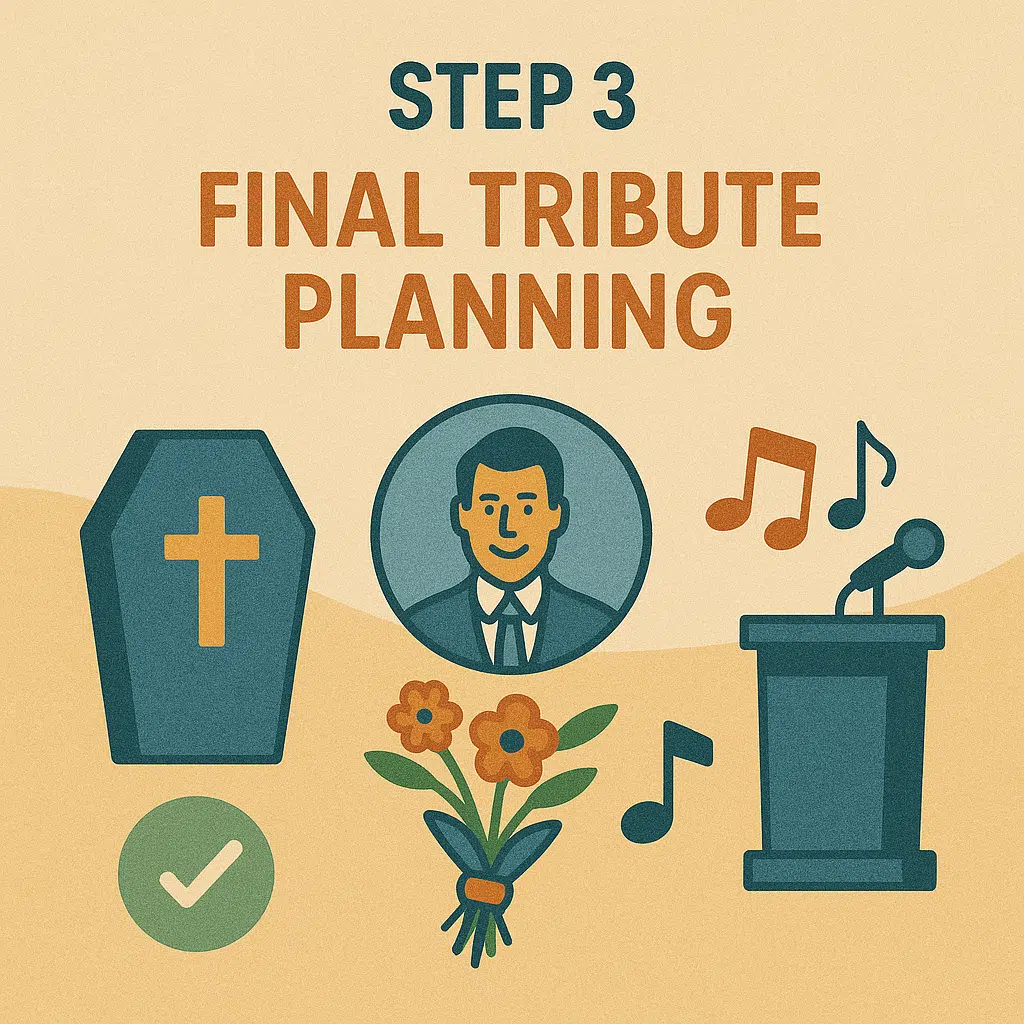It is your story. You should decide how it ends.
The End-of-Life Pathway Information Hub
Even the most thoughtful estate plan can leave room for confusion if your final wishes are not clear. The End-of-Life Planning Pathway helps ensure your values, choices, and instructions are known and followed. This three-step process walks you through care preferences, your final resting place, and how you want to be remembered.
When you complete all three steps, you are ready to fill out your Final Resting Place Instructions, a single clear document to help loved ones carry out your wishes.

What Is The End-Of-Life Pathway?
The End-of-Life Pathway is a three-step roadmap that lets you...
- Document your care preferences and assign decision-making roles,
- Outline your final-resting-place options with cost estimates and timing, and
- Craft a detailed celebration-of-life plan with vendor contacts and service details
...so your loved ones have clear instructions, practical tools, and peace of mind when the time comes.
Here’s what you get when you complete the end-of-life pathway
Explore The End-Of-Life Pathway
Step 1: Care Planning & Role Clarity
Start by deciding how you want to be cared for and who will be responsible.
-
Choose your preferences for life support, pain relief, and medical interventions
-
Complete Advance Directives and other planning forms
-
Appoint decision-makers such as a Medical or Financial Power of Attorney
-
Notify loved ones and professionals about who is responsible and where documents are located
- Use: Estate Planning Pyramid (Core), CLEAR Kit
Goal: Everyone knows what you want, who is in charge, and how to access your documents if you cannot speak for yourself.
Step 2: Final Resting Place Planning
This step focuses on your body, what happens to it, and where it goes.
-
Choose burial, cremation, green or natural options, or donation
-
Decide on a cemetery, memorial forest, or other resting location
-
Learn about local laws, religious or spiritual practices, and family preferences
-
Prepay or document logistical details to avoid last-minute decisions
- Use: Final Resting Place Information Hub, Final Resting Place Instructions
Goal: Your body’s final destination is clear and handled according to your wishes.
Step 3: Final Tribute Planning
This is about how you want to be remembered and who will be part of the experience.
-
Choose the kind of service you want, or note that you do not want one
-
List preferred music, readings, speakers, or rituals
-
Identify people you want notified or involved
-
Leave ideas for your obituary or write a message for your loved ones
- Use: Final Tribute Planning Information Hub, Final Resting Place Instructions
Goal: You have designed a farewell that reflects your life, your values, and your relationships.
Key Things To Know
Before you start planning, here are a few important things to keep in mind about the End-of-Life Pathway.
- It is for everyone: End-of-life planning is not just for the elderly or seriously ill. Small steps matter: You do not have to do everything at once for it to make a difference.
- Medical decisions come first: Setting care preferences is the foundation for everything else.
- Final arrangements are personal: Burial, cremation, or donation decisions are entirely up to you.
- Celebrations can be unique: A memorial can be as traditional or as creative as you want.
- Family benefits from clarity: Leaving clear instructions eases stress and prevents conflict.
- Plans can evolve: You can update your pathway as your wishes or life circumstances change.
- State laws vary: Some decisions, like advance directives, may require specific forms.
- The goal is peace of mind: A little planning now can spare your loved ones uncertainty later.
Frequently Asked Questions
Here are some common questions about the End-of-Life Pathway to help you feel more confident as you plan.
Disclaimer: The information provided on this website and by Buried in Work is for general informational purposes only and should not be considered legal advice. Please consult with a qualified attorney or subject matter expert for advice specific to your situation.



